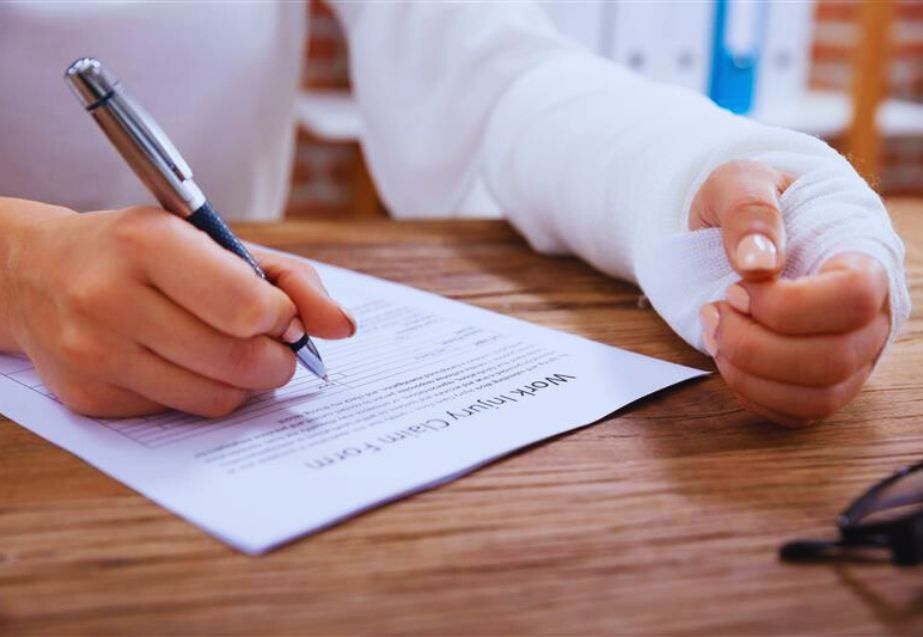
Getting injured when no one else is around can be stressful, and it can also complicate things if you later need to explain what happened to a doctor, insurance provider, or a law team that specialises in Athens, Georgia, personal injury cases.
If you have no witness, it is on you to gather proof and present it before the attorney. So, you have to act promptly and document everything in detail. You might not be sure whether you will take legal action, but keep things documented in case you change your mind.
So, how to write an injury report, or how should you document an injury report?
Why Is Injury Documentation Important?
If you start documenting the accident properly, it will help you document how badly you were injured. Also, keep a document of how much you have spent and how it has affected your daily life.
So, how to write an injury report? Technically, you do not have to pen it down yourself; you just have to provide your attorney with everything, and they will prepare a report for you.
You have to provide them with every piece of information through documentation, and this can include medical reports, doctors’ visits, and photographic evidence.
If you can provide evidence and detailed documentation, it will help prove the claim and support your personal injury case.
How To Write An Injury Report: Things To Do After The Incident
After the injury, you should start collecting proof as soon as possible. Even a small detail can turn out to be important evidence later. Here’s a practical breakdown of what to do to protect yourself.
1. Take Photos Or Videos As Soon As Possible
If you’re able, use your phone to photograph or record the scene. Focus on any hazards, such as a broken step, a wet surface, or poor lighting.
Capture your injuries as well—both close-up and wide shots. Take multiple angles and don’t worry about quality; even blurry or rushed photos can help support your version of events later.
Try to do this before anything is moved or altered.
2. Write Down A Detailed Account Immediately
First, get yourself in a safe place, and then write everything down. Write exactly what happened at the scene. Do not forget to include the time, location, and what you were doing there before the injury. Mention how it happened.
Moreover, include how you felt just after you were injured– whether it was painful, dizzy, or if you were unable to move for a while.
Do not depend on your memory. Write things down in detail, and that will prove to be of immense help afterwards.
3. Report The Incident
Even if there was no eyewitness at the time of the accident, inform the property owner, the manager, or the authority of the place. If the incident happened in a workplace, store or any public place, ask them to file an incident report.
If that does not happen, email them, mentioning what happened and how it happened. This way, you will have a digital record of what happened. Also, ask them for a copy of the report or acknowledgement.
4. Get Medical Attention Promptly
Some injuries might not have an immediate effect. They might not be visible or cause pain immediately after the incident. It could be a concussion, internal bruising, or a sprain. So, it is important to get yourself checked by a medical professional.
Be honest with your doctor about how the injury occurred and when the symptoms began. This will help connect the medical record to the incident.
Your medical records will be the most important. They show how serious your injury is and the time period it might take you to recover.
5. Keep Records Of Everything
Create a folder to store:
- Photos of the injury and the location
- Medical records and treatment notes
- Receipts for medication or therapy
- A simple journal describing your pain levels and any challenges with daily life
Consistent records help show the long-term impact of your injury, even if no one else witnessed the event.
6. Track All Expenses
Make a list of every bill that is somehow related to the injury. This will include travel costs, medical expenses, medication costs, and anything else that you had to try to recover.
These expenses are related to the claims and will help prove how much you had to bear for your medical care.
7. Document Any Financial Loss
When you are caught up in an injury, it is not just the medical costs that you have to take care of. You will miss weeks and months of work, miss out on job opportunities, and might not be able to earn as much as you used to.
That is why it is important that you keep a record of everything you spend on the injury. These financial losses make up for your personal injury case, and your attorney will have to prove these if they have to include them in your compensation claims.
8. Consider Any Possible Witnesses After the Fact
Even if no one saw the injury happen, someone may have seen you immediately afterwards. A passerby who helped you stand up, a store employee who brought assistance, or even someone who noticed a dangerous condition before or after the incident—all of these can be useful.
If you remember anyone like this, try to get their contact information and a short statement, even informally.
Avoid Common Mistakes
There are some common mistakes people make while documenting injuries. These can reduce your chances of a successful claim. These are the mistakes that people mostly make:
- Not seeking medical attention immediately
- Not following up with care
- Losing paperwork
- Skipping appointments
- Not keeping a record of money spent
Consult A Legal Professional Early
If you’re uncertain about your rights or how to proceed, speak with a personal injury lawyer as soon as possible.
They can help assess whether your documentation is strong enough and what steps to take next. Moreover, they can suggest to you how to write an injury report.
Some firms offer consultation for free, which can turn out to be helpful initially if you have no witnesses to support you with the claim.
Being injured and having no one around you can make you feel vulnerable and helpless, but this does not mean that you have no recourse.
With immediate action and detailed documentation, you can build a strong case and protect yourself medically and legally. Keep things organised, take step-by-step action, and ask for advice whenever you need.











0 Reply
No comments yet.